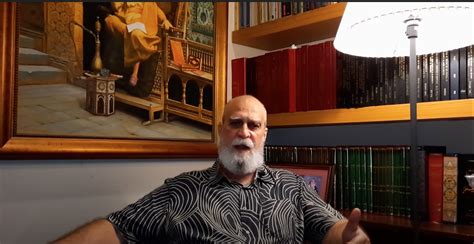A Quote by Bertrand Russell
Philosophy arises from an unusually obstinate attempt to arrive at real knowledge. What passes for knowledge in ordinary life suffers from three defects: it is cocksure, vague and self-contradictory. The first step towards philosophy consists in becoming aware of these defects, not in order to rest content with a lazy scepticism, but in order to substitute an amended kind of knowledge which shall be tentative, precise and self-consistent.
Quote Topics
Related Quotes
In order to arrive at knowledge of the motions of birds in the air, it is first necessary to acquire knowledge of the winds, which we will prove by the motions of water in itself, and this knowledge will be a step enabling us to arrive at the knowledge of beings that fly between the air and the wind.
First, my people must be taught the knowledge of self. Then and only then will they be able to under-stand others and that which surrounds them. Anyone who does not have a knowledge of self is considered a victim of either amnesia or unconsciousness and is not very competent. The lack of knowledge of self is a prevailing condition among my people here in America. Gaining the knowledge of self makes us unite into a great unity. Knowledge of self makes you take on the great virtue of learning.
Even those who have desired to work out a completely positive philosophy have been philosophers only to the extent that, at the same time, they have refused the right to install themselves in absolute knowledge. They taught not this knowledge, but its becoming in us, not the absolute but, at most, our absolute relation to it, as Kierkegaard said. What makes a philosopher is the movement which leads back without ceasing from knowledge to ignorance, from ignorance to knowledge, and a kind of rest in this movement.
We must strive for freedom if we strive for self-knowledge. The task of self-knowledge and of further self-development is of such importance and seriousness, it demands such intensity of effort, that to attempt it any old way and amongst other things is impossible. The person who undertakes this task must put it first in his life, which is not so long that he can afford to squander it on trifles.
Self-knowledge is not the knowledge of a dead self, self-knowledge is the knowledge of the process of the self. It is an alive phenomenon. The self is not a thing, it is an event, it is a process. Never think in terms of things, the self is not there inside you just like a thing waiting in your room. The self is a process: changing, moving, arriving at new altitudes, moving into new planes, going deeper into new depths. Each moment much work is going on and the only way to encounter this self is to encounter it in relationship.
Without knowledge of self there is no knowledge of God Our wisdom, in so far as it ought to be deemed true and solid Wisdom, consists almost entirely of two parts: the knowledge of God and of ourselves. But as these are connected together by many ties, it is not easy to determine which of the two precedes and gives birth to the other.
Knowledge, in so far as it is directed to practical matters, has only to enumerate the principal possible attitudes of the thing towards us, as well as our best possible attitude towards it. Therein lies the ordinary function of ready-made concepts, those stations with which we mark out the path of becoming. But to seek to penetrate with them into the inmost nature of things, is to apply to the mobility of the real a method created in order to give stationary points of observation on it.

































